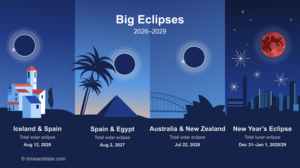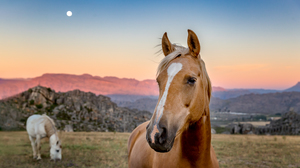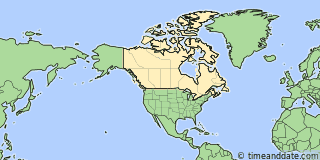| Current Time: | Sep 10, 2025 at 11:42:35 am |
|---|---|
| Moon Direction: | ↑ 304° Northwest |
| Moon Altitude: | -8.9° |
| Moon Distance: | 364,820 km |
| Next New Moon: | Sep 21, 2025, 12:54 pm |
| Next Full Moon: | Oct 6, 2025, 8:47 pm |
| Next Moonrise: | Today, 8:31 pm |
Moonrise, Moonset, and Phase Calendar for Whistler, January 2025
Scroll right to see more
| 2025 | Moonrise/Moonset | Meridian Passing | ||||||||
|---|---|---|---|---|---|---|---|---|---|---|
| Jan | Moonrise | Moonset | Moonrise | Time | Distance (km) | Illumination | ||||
| 1 | 10:00 am | ↑ (128°) | 6:17 pm | ↑ (234°) | - | 2:03 pm | (16.4°) | 378,797 | 4.7% | |
| 2 | 10:23 am | ↑ (120°) | 7:41 pm | ↑ (243°) | - | 2:56 pm | (21.3°) | 376,018 | 10.6% | |
| 3 | 10:41 am | ↑ (111°) | 9:05 pm | ↑ (253°) | - | 3:46 pm | (27.3°) | 373,828 | 18.6% | |
| 4 | 10:56 am | ↑ (101°) | 10:27 pm | ↑ (264°) | - | 4:34 pm | (33.9°) | 372,184 | 28.5% | |
| 5 | 11:10 am | ↑ (90°) | 11:49 pm | ↑ (275°) | - | 5:21 pm | (40.9°) | 371,044 | 39.5% | |
|
|
11:24 am | ↑ (80°) | - | - | 6:09 pm | (47.8°) | 370,369 | 51.2% | ||
| 7 | - | 1:13 am | ↑ (286°) | 11:39 am | ↑ (69°) | 6:58 pm | (54.3°) | 370,175 | 62.8% | |
| 8 | - | 2:38 am | ↑ (297°) | 11:58 am | ↑ (60°) | 7:51 pm | (60.0°) | 370,524 | 73.8% | |
| 9 | - | 4:05 am | ↑ (306°) | 12:23 pm | ↑ (51°) | 8:48 pm | (64.4°) | 371,525 | 83.4% | |
| 10 | - | 5:31 am | ↑ (313°) | 12:58 pm | ↑ (45°) | 9:48 pm | (67.2°) | 373,269 | 91.1% | |
| 11 | - | 6:48 am | ↑ (317°) | 1:47 pm | ↑ (42°) | 10:50 pm | (68.0°) | 375,821 | 96.5% | |
| 12 | - | 7:51 am | ↑ (317°) | 2:52 pm | ↑ (43°) | 11:50 pm | (66.8°) | 379,152 | 99.4% | |
|
|
- | 8:36 am | ↑ (314°) | 4:09 pm | ↑ (48°) | Moon does not pass the meridian on this day. | ||||
| 14 | - | 9:07 am | ↑ (308°) | 5:29 pm | ↑ (55°) | 12:47 am | (63.9°) | 383,133 | 99.6% | |
| 15 | - | 9:29 am | ↑ (300°) | 6:48 pm | ↑ (63°) | 1:39 am | (59.7°) | 387,509 | 97.5% | |
| 16 | - | 9:46 am | ↑ (291°) | 8:03 pm | ↑ (72°) | 2:26 am | (54.5°) | 391,986 | 93.2% | |
| 17 | - | 9:59 am | ↑ (282°) | 9:15 pm | ↑ (82°) | 3:10 am | (48.9°) | 396,200 | 87.2% | |
| 18 | - | 10:11 am | ↑ (273°) | 10:25 pm | ↑ (91°) | 3:51 am | (42.9°) | 399,812 | 79.8% | |
| 19 | - | 10:22 am | ↑ (264°) | 11:33 pm | ↑ (101°) | 4:30 am | (37.0°) | 402,498 | 71.4% | |
| 20 | - | 10:33 am | ↑ (255°) | - | 5:10 am | (31.2°) | 404,019 | 62.3% | ||
|
|
12:42 am | ↑ (110°) | 10:46 am | ↑ (247°) | - | 5:50 am | (25.7°) | 404,207 | 52.8% | |
| 22 | 1:53 am | ↑ (118°) | 11:01 am | ↑ (239°) | - | 6:32 am | (20.7°) | 403,006 | 43.1% | |
| 23 | 3:06 am | ↑ (126°) | 11:21 am | ↑ (232°) | - | 7:18 am | (16.4°) | 400,473 | 33.5% | |
| 24 | 4:19 am | ↑ (132°) | 11:49 am | ↑ (226°) | - | 8:07 am | (13.1°) | 396,768 | 24.4% | |
| 25 | 5:30 am | ↑ (137°) | 12:28 pm | ↑ (222°) | - | 9:00 am | (11.1°) | 392,181 | 16.1% | |
| 26 | 6:32 am | ↑ (138°) | 1:22 pm | ↑ (222°) | - | 9:57 am | (10.5°) | 387,077 | 9.1% | |
| 27 | 7:22 am | ↑ (136°) | 2:31 pm | ↑ (225°) | - | 10:54 am | (11.7°) | 381,904 | 3.8% | |
| 28 | 7:59 am | ↑ (131°) | 3:53 pm | ↑ (231°) | - | 11:52 am | (14.7°) | 377,087 | 0.8% | |
|
|
8:26 am | ↑ (124°) | 5:19 pm | ↑ (240°) | - | 12:47 pm | (19.2°) | 373,033 | 0.2% | |
| 30 | 8:46 am | ↑ (114°) | 6:46 pm | ↑ (250°) | - | 1:39 pm | (25.0°) | 370,011 | 2.5% | |
| 31 | 9:03 am | ↑ (104°) | 8:11 pm | ↑ (261°) | - | 2:29 pm | (31.6°) | 368,160 | 7.5% | |
| * All times are local time for Whistler. They take into account refraction. Dates are based on the Gregorian calendar. Illumination is calculated at lunar noon. | ||||||||||
Jan | Feb | Mar | Apr | May | Jun | Jul | Aug | Sep | Oct | Nov | Dec
Elsewhere on mungfali.galihkartiwa07.workers.dev

4 Eclipses Not to Miss 2026–2029
Some eclipses, like this month’s partial solar eclipse, can be very elusive. We’ve compiled a list of upcoming eclipses you can get to in real life.

Skywatching Tips for September 2025
What’s up in the day and night sky in September 2025, including a Blood Moon and a partial lunar eclipse.

Moon Guide for September 2025
Discover the phases of the Moon in September 2025, plus a total lunar eclipse and the New Moon partially eclipsing the Sun.

Full Moon Names
Ancient cultures gave names to the Full Moon. These names are still in use today.
